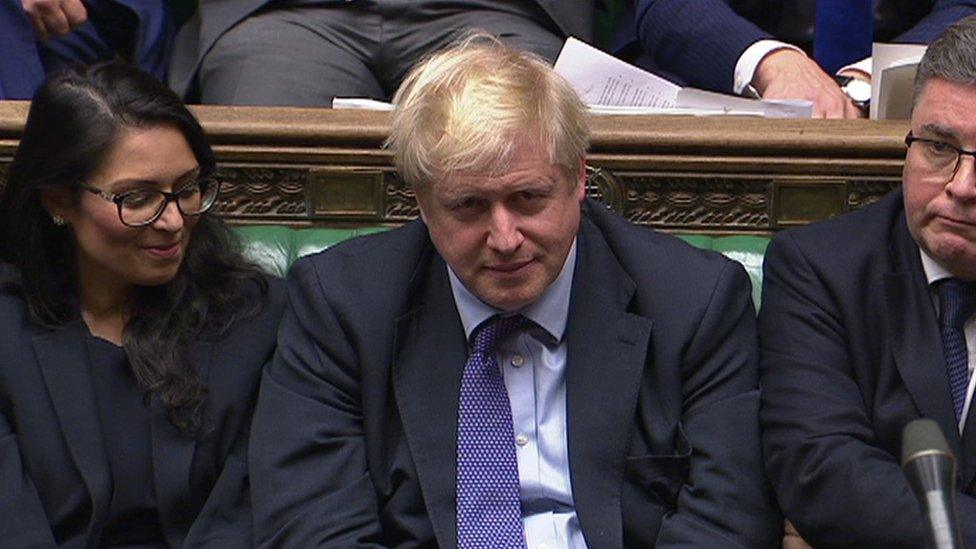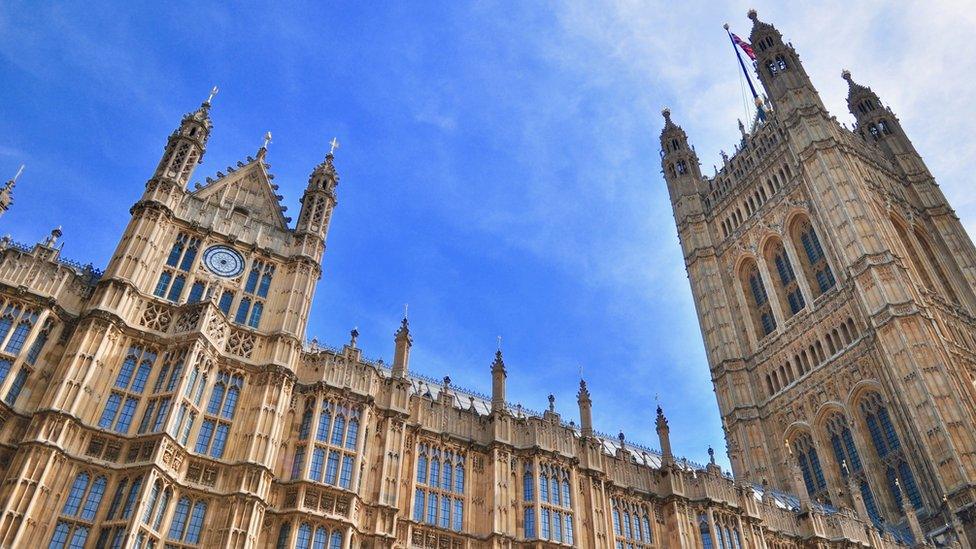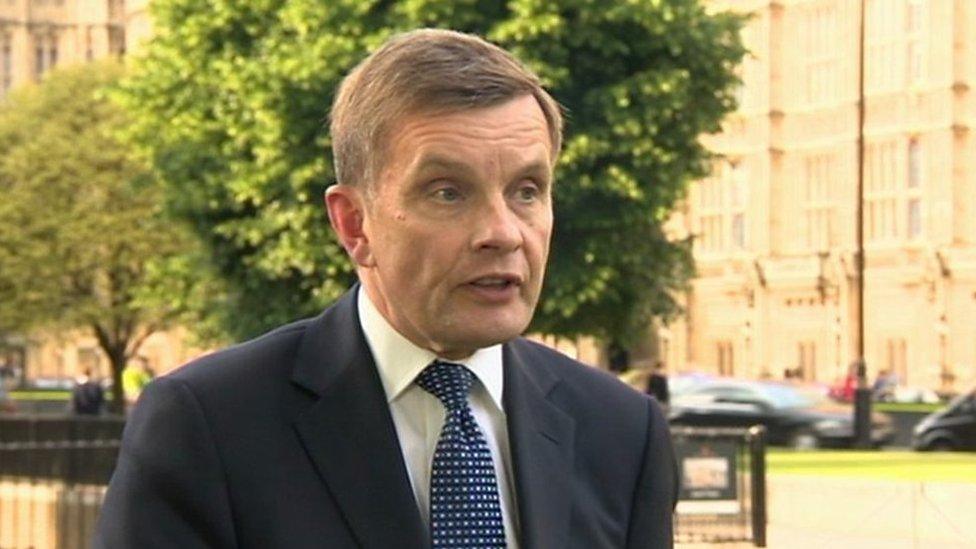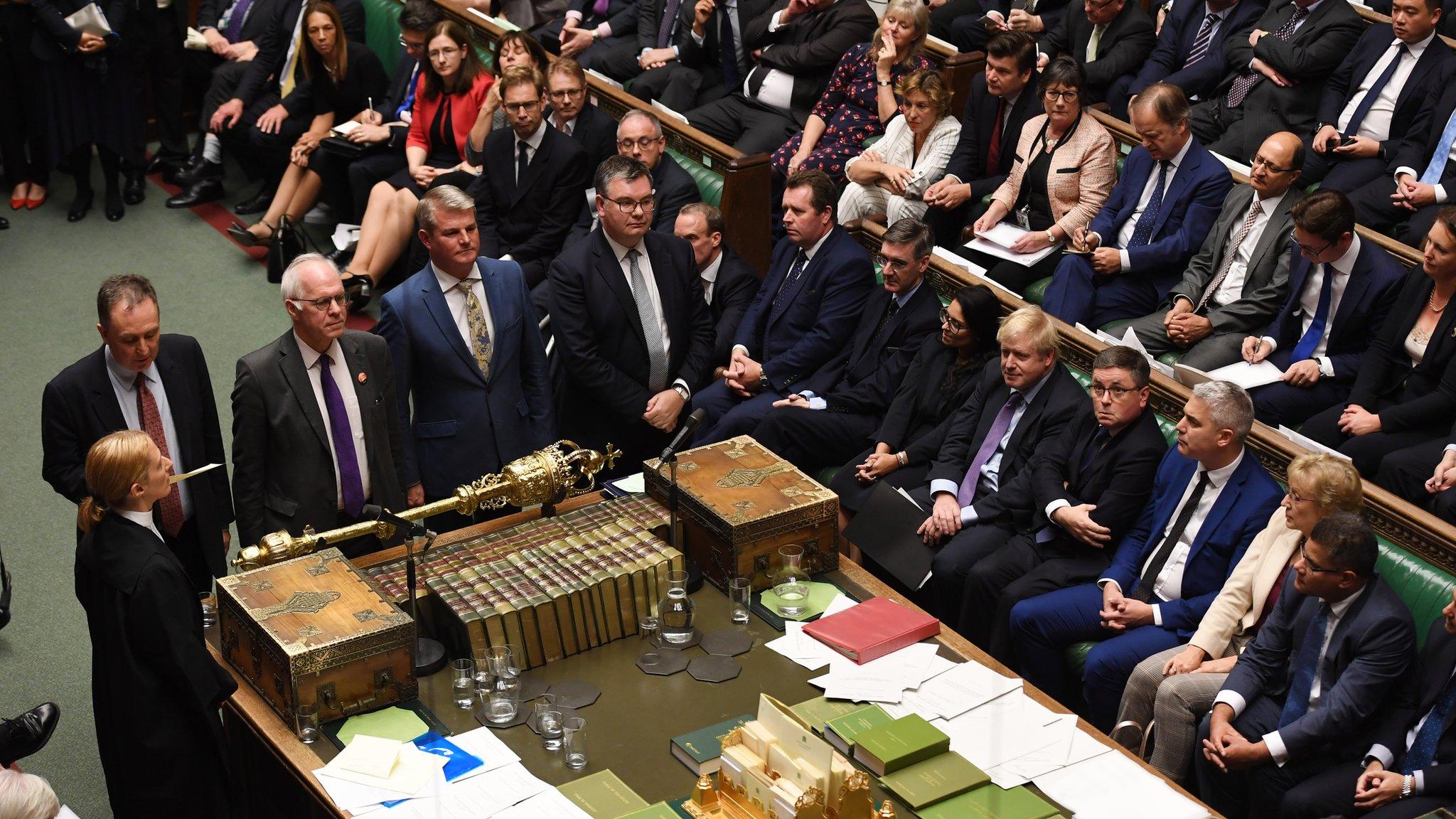Brexit: Boris Johnson's timetable rejected by most Welsh MPs
- Published
- comments

Boris Johnson told MPs the UK "now faced further uncertainty"
Most of Wales' MPs have joined colleagues in opposing Boris Johnson's three-day timetable to get his Brexit deal through the House of Commons.
MPs voted 322 versus 308, with a majority of 14, to reject the PM's bid to fast-track his Brexit law.
Welsh Labour and Plaid Cymru members were among those opposing the plan.
First Minister Mark Drakeford welcomed the vote, saying it was unacceptable to expect proper scrutiny of "such a significant bill in such little time".
He and his Scottish counterpart Nicola Sturgeon have called for Brexit to be extended to help MPs, AMs and MSPs examine the legislation.
Former Brexit minister David Jones said opposition MPs were risking a no-deal departure.
MPs did back the general principles of the bill, passing its second reading.
But David Davies, Tory MP for Monmouth, predicted it was "not very likely" that the UK will leave the EU on the 31 October.
"Parliament is going to do its up most to stop that from happening," he said.
The events in the Commons came after the Welsh Assembly voted against Boris Johnson's deal - with Mark Drakeford calling for AMs to go further and formally refuse consent for it to become law.
Liz Saville Roberts, Plaid Cymru's parliamentary leader, said the delay gave "more opportunity" to release economic impact assessments of the Brexit deal.
Stephen Kinnock, a Labour MP who has talked about supporting a deal, voted against the timetable and the second reading.
He said the government was "looking to make a bonfire of workers' rights, environmental protections and consumer protections".
He added: "The more you diverge from European regulations the more difficult it is to do a free trade deal with the EU because they will not want to do a deal with Singapore-on-Thames with an economy that's looking to undercut them.
"I think that could have been very damaging to the steel industry and the manufacturing sector in Wales and across the United Kingdom."

The prime minister told the Commons he would "pause" his legislation until the EU had "stated their intentions".
He sent a letter earlier this week, as required by the Benn Act, requesting an extension to the Brexit date of 31 October.
Mr Johnson told MPs he was "disappointed" they had "voted for delay", and said the UK "now faced further uncertainty".
But he said his policy remained that Brexit would go ahead at the end of the month, but added: "One way or another, we will leave the EU with this deal to which this House has just given its assent."
Welsh politicians opposing the timetable included the 28 Welsh Labour MPs, Plaid's four, Welsh Liberal Democrat leader Jane Dodds and former Welsh Conservative MP Guto Bebb.
All six Welsh Tory MPs backed the timetable, including former Brexiteer rebel David Jones who joined party colleagues in supporting the second reading.
The latter was rejected by Welsh Labour and Plaid Cymru, Mr Bebb and Ms Dodds.
Mr Jones had voted against Theresa May's Brexit deal three times.

David Jones said opposition MPs were risking a no-deal Brexit
Former Brexit minister David Jones said opposition MPs risked leaving the European Union without a deal when they opposed Boris Johnson's timetable.
The Clwyd West MP said MPs should "reflect on whether that is actually what they want".
"It's now important that first of all the government speak to the DUP, and secondly the opposition parties concentrate on what will happen if we don't get this bill through," he said.
Mr Jones said an agreement is still possible with the DUP, which has rejected the Brexit deal's plans for Northern Ireland.
"Tonight's defeat of the British government was a victory for democracy," said Plaid's Jonathan Edwards.
"By choosing to pause the Bill, the prime minister is doing more to delay Brexit than anyone else."
Welsh Lib Dem leader Ms Dodds said before the decision: "We need a People's Vote so we can break the deadlock and avoid a damaging no deal Brexit."
On Wednesday Mark Drakeford is planning to travel to Westminster to highlight what he sees as the dangers of Brexit.
He will join Nicola Sturgeon in a joint Westminster news conference.
- Published22 October 2019

- Published22 October 2019
